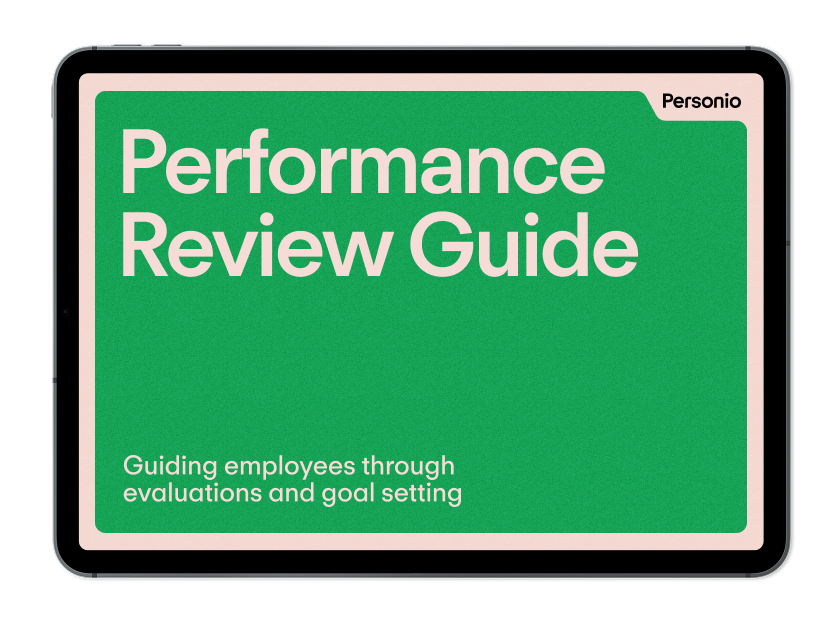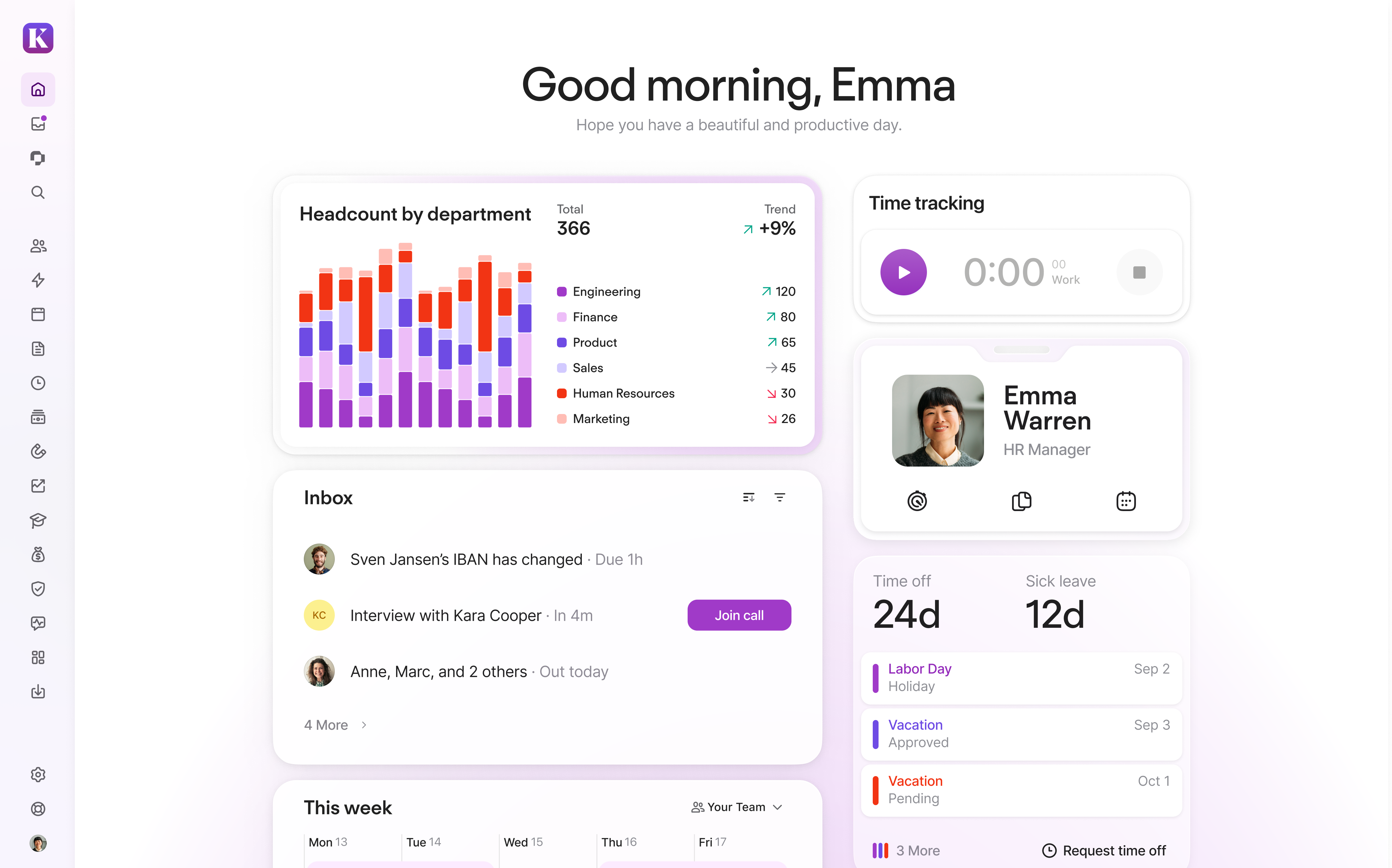Are You Missing Out On Employee Development?
According to LinkedIn’s 2022 Global Talent Trends Report, 59% of employees said professional development was the number one area they wanted their organisation to invest in to enhance company culture. This guide will cover the basics and benefits of employee development, as well as examples and practical advice for setting up your own programme.
Key facts:
Employee development is the process of helping employees continuously learn and grow their job-related skills and expertise.
Creating an employee development programme has a number of benefits for employees and employers alike, including career growth, retention, increased profitability, leadership cultivation and better engagement.
To set up an employee development programme, organisations should first evaluate the gap between where they stand today and the vision for the future, before creating personalised plans for each employee and offering plenty of internal and/or external development opportunities
What is employee development?
Employee development refers to the process of supporting and enabling employees to continuously improve their skills and knowledge. This can come in many forms, from learning more about the industry to developing skills with new technology to developing new competencies for roles.
Employee development is important for both sides: employers want skilled, qualified and agile employees; and employees want to grow, advance and be successful in their jobs.
Benefits of employee development
Employee development initiatives can benefit all involved, from the employee who is learning to the employer and even the colleagues and customers working with that employee. Some of the top benefits include:
Career growth
Employee development programmes play an important role in career growth, enabling workers to learn the skills needed to level up. Employees who feel they have reached a ceiling in their role are likely to become demotivated or even resign from the position: A Pew Research poll in 2022 found that “no opportunities for advancement” was the second largest reason people quit their jobs, trailing only behind the reason “pay was too low”.
Retention
Retention is a huge concern in the current economic landscape. Average company turnover in the UK is expected to hit 35.6% in 2023, an increase of nearly 38% since 2019. Amanda Day, Director of People Enablement at Remote, put it this way:
“With the average cost of finding a new employee at £7,729 in the UK and $22,814 in the US, companies need to invest more in retaining top performers rather than spending the time and money needed to replace them.”
Organisations that prioritise employee development are perceived as being more committed to the needs, growth and wellbeing of their employees, leading to higher retention. When staff feel valued and supported, they are less likely to look for work elsewhere.
Profitability
The link between investment in employee development and business performance is clear. If staff are more skilled and knowledgeable about their roles, they are better equipped to tackle complex tasks efficiently and effectively – together as a team – reinforcing quality outcomes and increasing ROI.
Professional development also ensures employees are up-to-date on the latest technology, trends and other insights that help your company compete and innovate.
Cultivate leadership
Always turning to the external applicant pool to fill leadership positions can only get you so far. The most successful, long-lasting organisations build an educational culture that grows a pipeline of leaders within the company.
This impacts the bottom line, too: According to Deloitte, organisations with strong leadership see a 37% increase in revenue per employee and a 9% increase in gross profit margin.
With a continuous, in-house employee development programme, businesses can ensure employees are gaining the necessary skills and knowledge to become leaders over time.
Boost engagement
People are more engaged when they are learning and growing their skills (or teaching those skills to others). Giving employees access to training programmes, mentorship, and other development opportunities helps them feel challenged and motivated, increasing job satisfaction and employee engagement.
Engaged employees create a positive work environment for all; one that encourages teamwork and collaborations. This can be contagious, spreading motivation and productivity across the organisation.
Performance Review Template: Host More Productive Conversations

Add more structure to your performance conversations today. Download our templates to help guide the conversation.
Download NowHow to implement an employee development plan
When building an employee development plan for your organisation, you’ll have to take your specific situation into account, from industry and company size to budget and available resources.
Evaluate the organisation
First, take a step back and define the future vision of the organisation before assessing where you currently operate today. What's the gap between the present state and the future vision of the company? Would a skills gap analysis be helpful here?
When you understand the gap that exists, you can determine which training and development programmes will be most effective for your specific workforce.
Customise plans to each employee
The most effective development plans will be customised to the individual. Identify where an employee's existing skills lie – through skills audits, assessments or surveys – and where they have opportunities to improve. Then work with the employee to identify areas in which they would like to improve, and create an individualised development plan.
Create opportunities for development
Each organisation should ask what it can do to propel employees forward. Creating plenty of development opportunities and integrating them into the weekly schedule ensures all employees have the chance to engage and enjoy the learning process.
There are many types of development you could offer (more on that later), as long as each one fits the development vision of the organisation as a whole, and helps employees progress in their individual development plans.
Solicit feedback
To ensure you're delivering valuable development opportunities, the best way is to ask the employees. Solicit feedback from employees regularly, whether through surveys, one-on-one check-ins or during performance reviews, to ensure they are finding the development plan valuable and challenging.
Any feedback the HR team receives on development opportunities can be used to refine the programmes going forward.
Employee development opportunities
There is no one “right” type of employee development; for most organisations, a mix of different methods will be most impactful. Some of our favourite opportunities at Personio are mentorship, Lunch and Learn sessions and professional training or certifications.
Mentorship
Set up a mentorship programme that pairs employees who are looking to develop in certain areas with more experienced members of the team who have expertise in those fields. Allowing employees to shadow senior colleagues and receive guidance and support can accelerate career development, while also fostering new relationships within the organisation.
Lunch and learns
A Lunch and Learn is an event that allows teams or departments to get together and learn about a professional development topic over lunch (usually paid for by the organisation). These sessions are a great way to provide employees with bite-sized learning opportunities or to communicate new information, skills or ideas.
Professional training and certification
Employee development doesn’t have to be an entirely internal endeavour. In many cases, turning to outside expertise can level up your employees even faster.
Sending employees to workshops and conferences, paying for relevant certifications or signing them up for professional training programmes can help employees progress in their development plan and also have significant ROI for the business.

